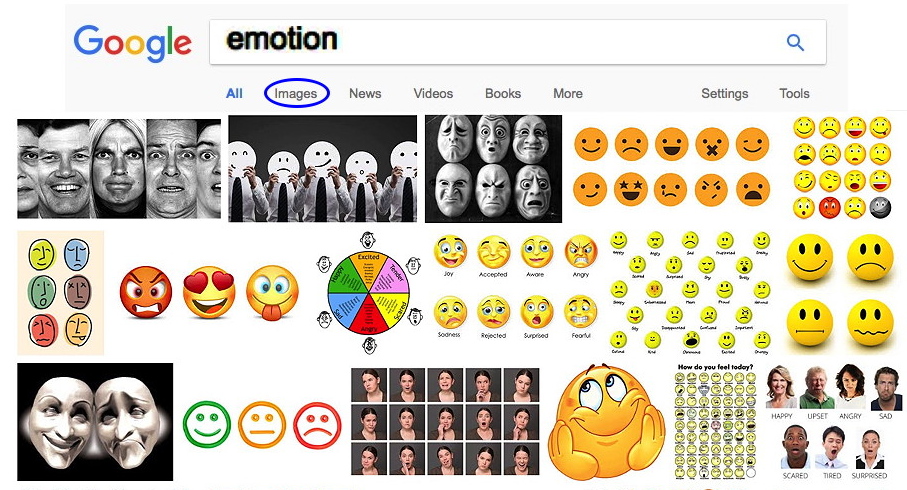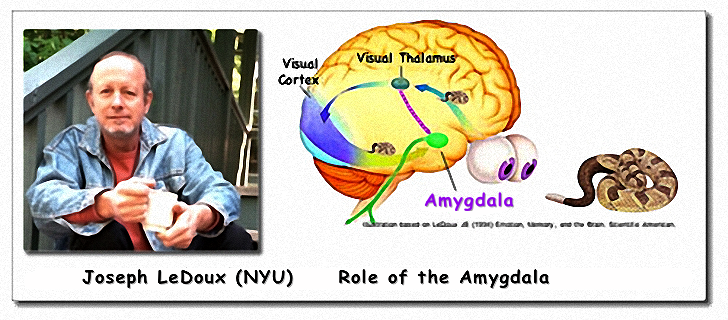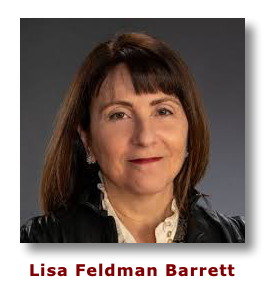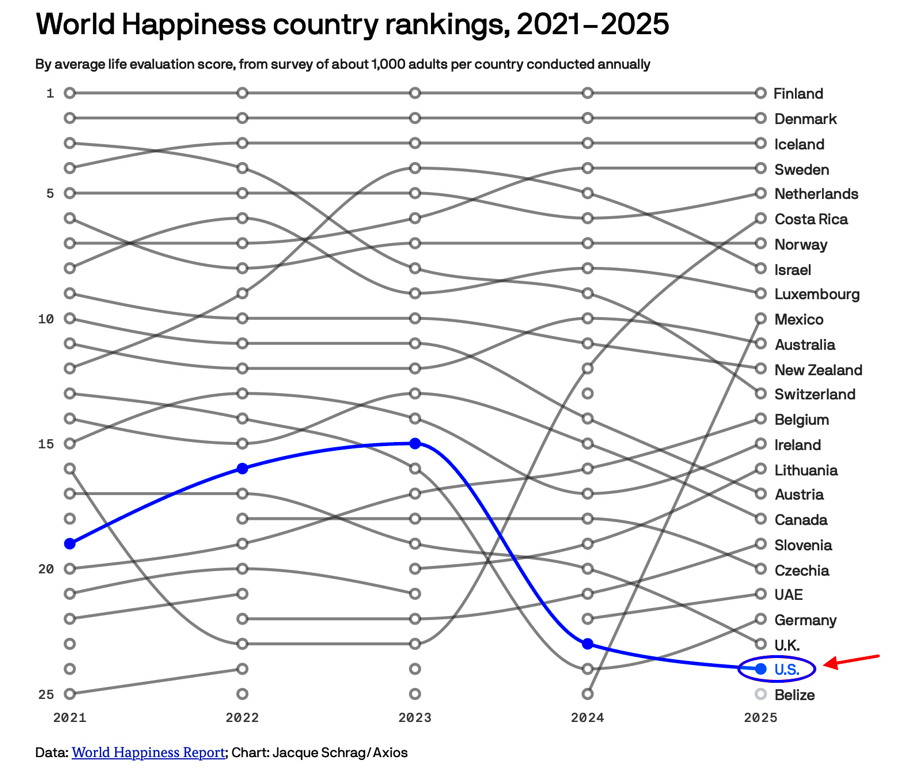![[Home]](../psy101graphics/homep.gif)
Last updated
Oct 21, 2025
![[Psychology Images]](../psy101graphics/intro_25.jpg) Class 24: Motivation III: Emotions (Outline)
Class 24: Motivation III: Emotions (Outline)
![[Home]](../psy101graphics/homep.gif) Last updated Oct 21, 2025 |
PSY
101
![[Psychology Images]](../psy101graphics/intro_25.jpg) Class 24: Motivation III: Emotions (Outline)
Class 24: Motivation III: Emotions (Outline) |
|

| The Elements of
Emotional Experience |
What is an "emotion"?
- subjective conscious experience (thinking/cognition/feeling)
- bodily arousal (a physiological component)
- some characteristic overt behavior (the behavioral component
Yet, to be honest, psychology is still fighting over the concept of 'emotion'
A. Cognitive Component
- Appraisal/evaluation
- Affective Forecasting ("hedonic" forecasting): Predicting our emotions in the future
- We are very poor in forecasting how we will feel in the future!
B. Physiological Component
- Autonomic Nervous System
- Sympathetic: "Fight or Flight"
- Parasympathetic: "Rest and Digest"
Polygraph ("Lie Detectors")
- High numbers of positive identifications of "guilty" individuals BUT
- Unacceptable number of FALSE "positive results" of those NOT GUILTY
Neural Circuits

- Joseph LeDoux's work at NYU on fear/anxiety & the central role of the amygdala in signalling threat
- Fast vs. Slow Pathways
- Defensive survival circuit
- Fear = current threat; anxiety = future threat
C. Behavioral Component
- Facial Feedback Hypothesis
- Has not been replicated
- Botulinum Toxin (BOTOX)
- Are these behaviors innate?
| Culture and Emotion |
Cross-Cultural Similarities
Are emotional expressions perceived the same way all over the world?
Paul Ekman: happiness, sadness, anger, fear, disgust, and surprise as universally-recognized emotions
Lisa Feldman Barrett: rejects that there are basic, universally-recognized emotions. Cites methodological difficulties in Ekman's studies. Argues that emotions are constructed in the same way that we interpret all the other aspects of our experience (more below)
Cross-Cultural Differences
- Feeling/Emotion Words in English
- Sadness: none in Tahiti
- Depression: none among Yoruba (Nigeria)
- Anxiety: none among Eskimos (Inuit people)
- Nonverbal Expression & Display Rules
| Theories of Emotions |
Popular or "Commonsense"
James-Lange Theory
Cannon-Bard Theory
Stanley Schachter's Two-Factor Theory
Evolutionary Theories of Emotion
- Darwin believed that emotions as expressed facially & vocally had adaptive value,
Modern evolutionary theories (Silvan Tomkins, Carroll Izard, & Robert Plutchik)
- See emotions as mostly inborn or innate reactions or responses to stimuli
- Link expression of emotions to subcortical brain structures, particularly the amygdala of the limbic system
- limited number of basic, primary, or fundamental emotions
- Plutchik"s Trust, anger, anticipation, disgust, joy, fear, sadness, surprise
Theory of Constructed Emotion (TCE; not in book)

For Barrett, emotion is not a feeling, but actually a conceptual category that the brain uses to explain what is going on for the individual. The brain is predicting what it is that you should be feeling now.
The Ingredients of Happiness
How Happy Are People?
- On a scale of 1 to 10 (with 1 = "miserable" and 10 = "extremely happy"), how would you rate how you were feeling a few years ago when COVID-19/the pandemic started affecting our lives?
- On that same same of 1 to 10, how would you rate how you were feeling now?
- What about how people are feeling in the United States in general?

- What about how people are feeling in the United States according to different age? Here is the summary and the data from the 2024 World Happiness Report:
- “In many but not all regions, the young are happier than the old. But in North America happiness has fallen so sharply for the young that they are now less happy than the old.” (Helliwell et al., 2024, p. 5)
- Across 143 countries, people in the United States under the age of 30 ranked only in 62nd place (below the Dominican Republic and just a bit above Peru and Malaysia).
- However, people in the United States over the age of 60 ranked in 10th place (just below Canada and Australia and just above the United Arab Emirates and Luxembourg). (Data from 2021-2023; Helliwell et al., 2024).
- People overall were happiest in Lithuania and most unhappy in Afghanistan
What predicts subjective well-being or happiness? Weak Predictors Moderately Strong Predictors Stronger Predictors
- Money
- Age
- Parenthood
- Intelligence & Attractiveness
- Health
- Social Activity
- Religious Belief
- Relationship Satisfaction
- Work
- Genetics & Personality
Who are the Extremely Happy People Across the World? (Diener et al., 2018)
- Data from Gallup World Poll (2005-2015; 166 nations; 1.6 million respondents
- Characteristics
- Lived in prosperous societies (and they themselves did not have low income or serious money problems)
- Experienced strong social support (e.g., being treated with respect; having social relationships via church & other groups)
- Did not have significant health problems or pain
- On the previous day had felt rested, learned something, chose how to spend their time, and were proud of something
- No one individual variable necessarily led to high levels of happiness
- Lacking resources (income, health, and social support) associated with unhappiness
Implications for the United States ???
- Wealth disparities
- Access to health care disparities (& high levels of chronic pain/addiction)
- Need to work more than one job OR not having a job
Conclusions
- How you feel (subjective feeling) is more important than subjective realities
- Judgments of happiness are all relative: we tend to compare ourselves with others like us, not to those unlike ourselves
- People adapt to their circumstances, especially when facing setbacks and difficulties = hedonic adaptation
- Dwindling levels of social support